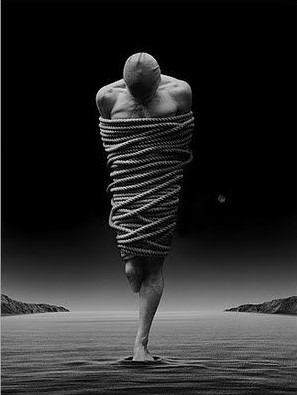What is mental hygiene? Why is mental health still treated as a cultural taboo? And how do untreated psychological conditions escalate into inner warfare?
In our fast-paced world, mental hygiene remains an often-neglected but vital topic. Despite increasing awareness, cultural norms still dictate how mental health is perceived, discussed, or entirely ignored. The consequences of these perceptions are far-reaching, impacting everything from childhood development to adult relationships, workplace dynamics, and even broader social behaviour.
Cultural Conditioning and Emotional Repression
Culture is not just about food, festivals, or fashion—it’s the unseen architecture of our thoughts, values, and behaviours. Influenced by ethnicity, religion, race, and family traditions, these norms are passed on generationally, shaping how societies view vulnerability and emotional well-being.
In many traditional cultures, mental hygiene is not considered a legitimate concern. Rather, mental illness is dismissed as weakness, misfortune, or even a sign of supernatural possession. In such settings, an individual’s emotional distress is not validated. Instead, it becomes a source of stigma, leading to shame, secrecy, and denial.
A person suffering from depression, for example, may be told to “pray it away” or to stop being ungrateful. Meanwhile, anxiety may be mistaken for poor character or laziness. This harmful rhetoric creates barriers for people who might otherwise seek professional help.
Societal Denial and Emotional Neglect
Some societies acknowledge emotional imbalance but still trivialise it. Mental health isn’t treated with the same urgency as physical health. A panic attack may be waved off, while a fever sends someone to the ER. The underlying message is clear: only visible pain is worthy of care.
But what if this collective negligence is leading us toward a mentally unhealthy society?
Cultural reluctance to acknowledge emotional struggles makes people question their own perceptions. Many continue to suppress their emotions until symptoms spiral into uncontrollable trauma. Emotional intelligence is rarely taught, even though it is foundational to resilience, empathy, and decision-making.
The Role of Social Norms in Shaping Mental Attitudes
Social and cultural upbringing heavily influence how individuals interpret symptoms, seek help, and understand recovery. One’s background may determine whether therapy is seen as self-care or selfishness. In collectivist cultures, for instance, seeking therapy is often interpreted as betraying the family or exposing private matters.
These assumptions can become dangerous. Shame and guilt act as invisible chains that keep people silent, while families worry more about social image than emotional well-being.
In most Asian, African, or South American communities, derogatory labels like psycho, crazy, or possessed are still used casually. As a result, individuals suffering from mental distress are driven into isolation, compounding their pain.
But here’s a deeper issue—many cultures discourage emotional expression, especially among men. Vulnerability is mistaken for weakness, and strength is associated with silence. This toxic cycle further fuels generational trauma.
When Therapy Becomes a Marketplace
Amidst this, a disturbing trend has emerged: the commercialisation of therapy. Mental wellness, once a sacred process of healing, is increasingly marketed as a luxury service. Self-help mentors, wellness influencers, and even some therapists have commodified suffering for profit.
The lines between healing and monetisation are blurring. While therapy is important and often life-saving, we must remain critical of how certain sectors exploit psychological pain. Similarly, toxic positivity on social media platforms pressures individuals to “stay happy” no matter what. This invalidates real struggles and discourages honest expression.
People are made to feel guilty for not being grateful or cheerful enough. Yet denying negative emotions is not wellness—it is suppression.
Psychological Trauma in Everyday Life
Psychological trauma doesn’t always stem from grand-scale disasters. It can arise from day-to-day experiences: emotionally unavailable parents, abusive relationships, exclusion in social settings, or relentless work stress. Even creative professionals often battle unique mental health struggles, navigating the blurred lines between creativity and mental illness.
These wounds may not be visible but can manifest through addictive behaviours, chronic dissatisfaction, or unexplained physical symptoms. For some, trauma translates into overworking, people-pleasing, or self-sabotage.
Unfortunately, many never pause to reflect, let alone heal. The fast-paced nature of modern life keeps us distracted. Overconsumption of media, digital validation, and escapism numbs us from our true emotions. We confuse busyness with progress.


The Digital Age and Declining Mental Hygiene
In today’s hyper-digital society, we are more connected than ever, but more emotionally fragmented. Screens have become our emotional filters. We share curated joy but hide our despair. The pressure to perform, belong, and trend breeds burnout and self-alienation.
Children are growing up in a world where silence is loud and expression is filtered. Childhood development is now increasingly shaped by algorithmic culture rather than human connection. If this trajectory continues, we risk raising emotionally disconnected generations.
Religion, Identity, and the Inner Conflict
In many cases, religion provides a source of comfort and structure. However, when religious norms stigmatise mental illness or label it as a spiritual failure, they can also become oppressive.
Mental hygiene should not be at odds with spiritual practices. But when guilt is weaponised and emotional struggles are shamed as sin, individuals face a painful dilemma: preserve faith or pursue healing?
Similarly, identity conflicts within marginalised communities—whether due to caste, gender, or sexuality—can intensify mental stress. These individuals often carry invisible burdens, navigating survival while hiding their truth.
Mental Hygiene in the Workplace
Workplace culture is another domain where mental hygiene is often disregarded. The glorification of hustle, toxic leadership, and lack of psychological safety contribute to burnout. Many fear speaking up about mental struggles out of concern for job security or reputation.
The question we must ask is: Can productivity exist without emotional well-being?
Forward-thinking organisations are now prioritising emotional intelligence, empathy, and psychological support. Yet, progress is slow. Until we redefine success beyond numbers and targets, workplaces will continue to overlook humanity.

Toward Healing: Yoga, Eudaemonia, and Self-Care
Ancient practices like Yoga provide powerful tools for self-regulation. Far from being just a fitness trend, yoga is a spiritual and psychological healing system. Scientific research shows that it boosts GABA and endorphins—chemicals vital to emotional stability.
Yoga, journaling, mindful breathing, and other self-care practices can help recalibrate our emotional state. But healing isn’t one-size-fits-all. For some, psychotherapy or medical treatment is essential and should never be dismissed.
The ultimate goal is Eudaemonia—a state of flourishing that comes from aligning mind, body, and soul. Achieving this harmony takes commitment. It requires us to be brutally honest with ourselves and compassionate toward others.
Make Mental Hygiene a Priority
Every human being deserves the right to live without internal warfare. Mental hygiene isn’t just about managing illness—it’s about cultivating a life of meaning, awareness, and emotional truth.
Let’s stop treating mental health as a taboo or trend. Instead, let’s treat it as a necessity.
Let’s talk about it at dinner tables, in classrooms, and in boardrooms. Let’s create a culture that values authenticity over appearance, healing over hustle.
Because a healthy mind is not a luxury. It’s a foundation for a truly thriving world.
